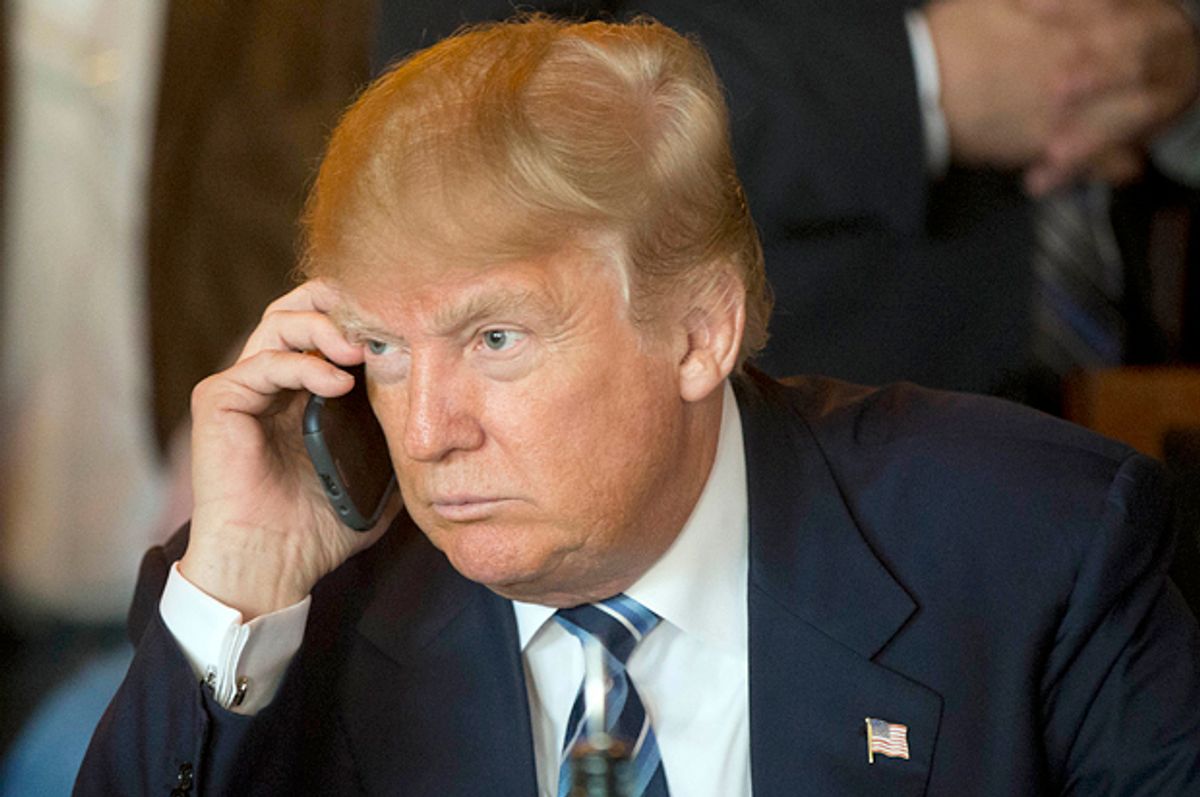The ideological makeup of the Supreme Court is arguably the most important issue at stake this election cycle, and the future of the court has been giving conservatives heartburn ever since Antonin Scalia passed away in February. One cannot overstate how critical a right-leaning Supreme Court is to the conservative agenda, and with their slim majority upset by Scalia’s death, what hope they have for restoring it rests in the stumpy-fingered hands of Donald Trump.
For conservative activists and court watchers, Trump’s surge to the Republican nomination is a worrisome development because, put simply, they know better than to trust him. He has no consistent ideological record, his grasp of legal issues is tenuous at best, and he’s given them no reason to put faith in his judgment. Trump is a clown, and while the running joke is that he’d nominate Guy Fieri or some other celebrity to replace Scalia, the genuine concern was that he’d fill the Supreme Court (and the lower courts) with Trump cronies. As law professor Orin Kerr put it to the Weekly Standard: “If Trump has a choice between an originalist conservative with sterling credentials who would often block Trump, and buddy of his who hasn't read the Constitution but would let Trump do what he wants, who do you think Trump would pick?”
This isn’t some theoretical concern: the history of Supreme Court nominations is studded with people who were selected for their connections to the president, the most recent being George W. Bush’s failed nomination of longtime loyalist Harriet Miers in 2005. Trump is, it’s probably safe to assume, more corruptible than most would-be presidents.
Well, to help allay those concerns, the Trump campaign released a list of eleven judges Trump would consider as Supreme Court nominees should he win the presidency. Trump had been hinting that he was working with conservative legal groups to come up with some potential nominees, and, wouldn’t you know it, the list he released was largely cribbed from a Heritage Foundation list of potential Supreme Court justices. All of Trump’s judges are white, eight of the eleven are men, and they generally fit the mold of the type of judge conservative activists are looking for. A number of them are ardently opposed to abortion rights and the expansion of gay rights. They’re pro-gun, pro-Citizens United, pro-voter ID, and conservatives are already singing Trump’s praises.
One immediate impact this list will have is to make Senate Judiciary Committee chairman Chuck Grassley’s life a little bit easier. Grassley has been the point person for the Senate GOP’s strategy of obstructing Merrick Garland, President Obama’s pick to replace Scalia. Grassley and the Republicans have been arguing that the nomination should be made by the next president, and one of the lines of attack Democrats and liberals have used against him was to basically just point at this picture of Donald Trump and say “Really? You want to leave it up to this guy?” But by putting out a list of potential nominees, Trump has given Grassley something to fall back on when reporters and Democrats press him on allowing a former reality TV star and serial liar pick Scalia’s replacement. Grassley has already called Trump’s list “impressive” and “an important step.”
Trump has also managed to slide another knife between the ribs of the already wounded #NeverTrump set. The hardline anti-Trump conservatives are mainly from the establishment and activist wings of the party – namely, the people who really care about judiciary. Putting out a list of judges approved by the Heritage Foundation and the Federalist Society will help to ease along their slow, inexorable transition from #NeverTrump to #EventuallyTrump. They won’t like him, but they’ll at least know who he’ll nominate to the Supreme Court, and they’ll know that he’ll pick someone more ideologically acceptable than Hillary Clinton. Faced with that choice, and fully aware of what a left-leaning Supreme Court means for the conservative agenda, they’ll force themselves to look past Trump less desirable qualities.
It was a smart move by Trump because it helps him “unify” the party without actually changing his behavior or altering any of the other uniquely Trumpian aspects of his popular appeal. This is the sort of stuff that people like House Speaker Paul Ryan are looking for as they very publicly agonize over whether to back their party’s presidential nominee. They’ll come around eventually, and this list of judges will factor hugely in their explanations for how they learned to accept Donald Trump.

Shares